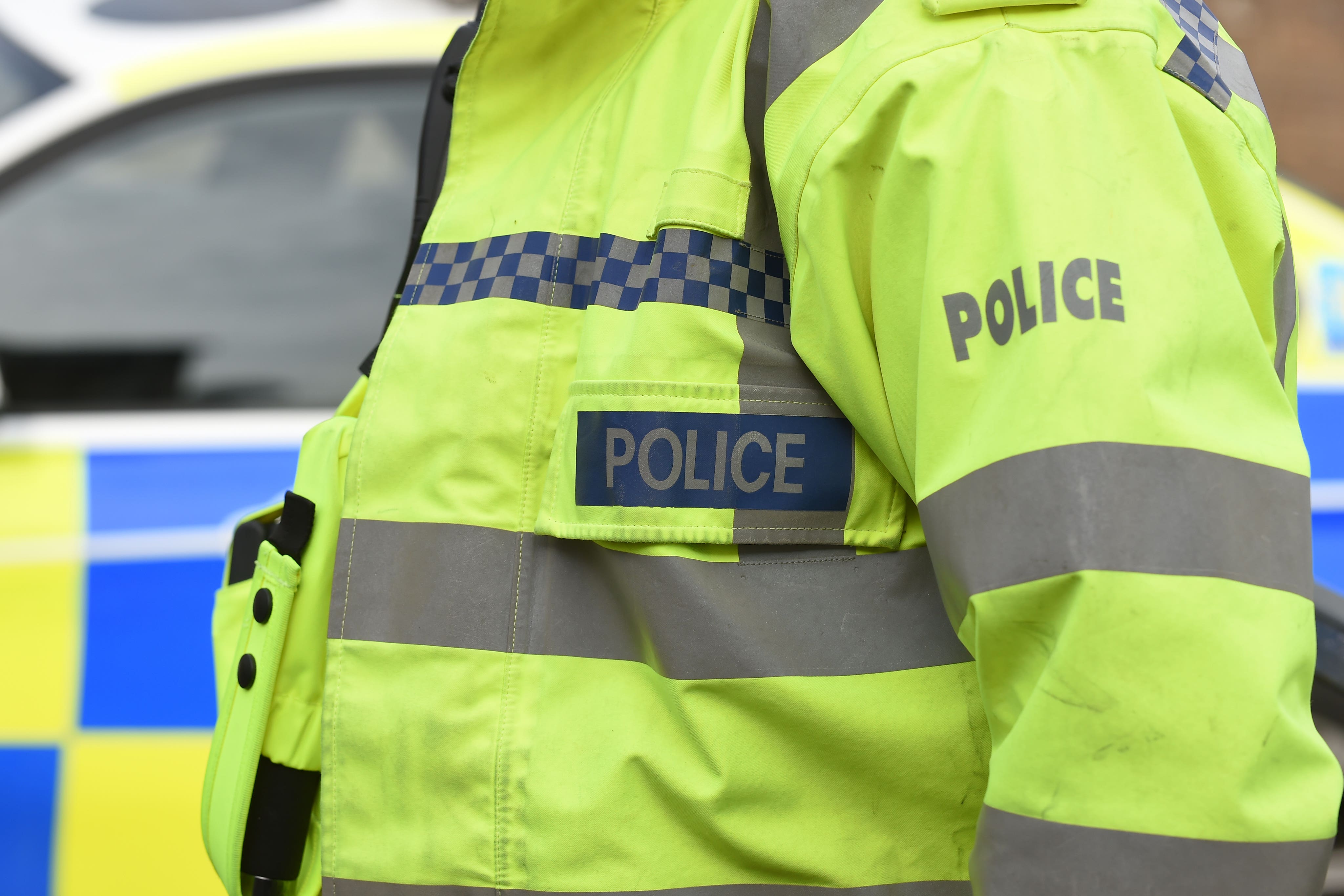‘16 years old, vulnerable, in handcuffs’: Police held Taser to teenager’s neck, hearing told
Mr Powell, now aged 20, said he “thought he was going to die” while surrounded by police, some armed

A Metropolitan Police officer who allegedly threatened a Black child with a stun gun during a stop and search breached multiple guidelines, a misconduct hearing has been told.
During the hearing into PC Connor Jones’ conduct, an officer identified only as PC Drew gave evidence about the night on which it is claimed PC Jones pressed a Taser against the youngster’s neck.
PC Drew did not deny that he also threatened Mr Powell with a Taser while acknowledging that the youth had been compliant and non-aggressive during the stop.
The officer said he “forgot” to record the incident in a use of force form after it occurred as he was required to do as a part of policing standards.
“It was a very busy day and, as a human being, I forget things sometimes,” PC Drew told the hearing which began on Monday and is set to last until Friday.
During the incident in Greenwich, south London, in September 2020, Mr Powell was handcuffed, ordered to kneel in the street, and allegedly intimidated by officers with stun guns.
Mr Powell, now aged 20 and who says he is still traumatised by the incident, previously said he “thought he was going to die” while surrounded by police, some of them armed.
It is claimed that Met Police officers’ actions were not a reasonable use of force and that the youngster was more of a threat because he is Black.
PC Drew told the hearing that he “doesn’t recall” when he switched his camera on because it was “a very long time ago”. According to the College of Policing, officers should start recording at the beginning of an incident and continue until it’s over.
At the time of the incident, officers said they were responding to reports of a hooded Black man dressed in a black tracksuit, who was armed with a samurai sword and threatening people at around 1pm that day.
PC Drew, who was asked numerous times throughout the hearing to speak up and project his voice in order to be heard properly, claimed that Mr Powell “matched the description” at the time which justified the search.
However, Mr Powell wasn’t wearing dark clothing or a hood.
When challenged about this during today’s hearing, PC Drew said he “doesn’t recall” why he told Mr Powell that he matched the description of the aforementioned hooded man when that was not the case.
PC Drew failed to comply with the force’s Gowisely policy, the hearing was also told.
‘Gowisely’ is an acronym referring to a policy outlining the information police officers are supposed to someone who is being stopped and searched, before its commencement, in order for the tactic to be deemed as lawful.
It highlights that the grounds for the search must be properly explained to a person being stopped and their entitlement to a record of the search being explained, among other things.
Despite Mr Powell querying the grounds of the search as he kneeled on the ground and asking what the suspect’s description is that he’s thought to have matched, PC Drew ignored him and proceeded to conduct an illegal search of a bag Mr Powell was carrying in order to, he said, locate a “really big knife”.
PC Drew admitted during the hearing that he had no legal grounds to search Mr Powell’s bag and it was suggested that the officer may have been looking for illegal drugs.
At the time of the incident, Mr Powell had been walking with four friends, one white and three Black. All were searched, though the white youth was not searched until much later.
One friend who witnessed the incident and was also placed in handcuffs, Zuriel Williams-Kabasomi, aged in his 20s and Black, told the hearing: “I was worried that the police were going to hurt him (Jamar)”.
He added: “I’ve seen people like us attacked for a lot less.”
When asked to clarify his meaning of “people like us”, Mr Williams-Kabasomi said: “Black people”.
“We’re 16 years old, vulnerable, in handcuffs and being treated like we’re a threat,” he added and described the police’s treatment as “brutalisation”.
The Met paid Mr Powell undisclosed damages over the incident last year after he sued for false imprisonment, assault and battery, direct discrimination, racial harassment and breaches of the Human Rights Act.
PC Jones was expected to give evidence during a hearing on Wednesday. If found guilty of misconduct, he faces instant dismissal from the force.
An Independent Office for Police Conduct (IOPC) spokesperson said: “We consider that to do so is in the public interest and should enhance public confidence in the police complaints process.
“It will be for the disciplinary panel, led by an independent legally qualified chair, to determine whether or not the gross misconduct allegations against the officer are proven.”
In December, the IOPC asked the Crown Prosecution Service to consider a criminal charge but that was rejected.
Bookmark popover
Removed from bookmarks